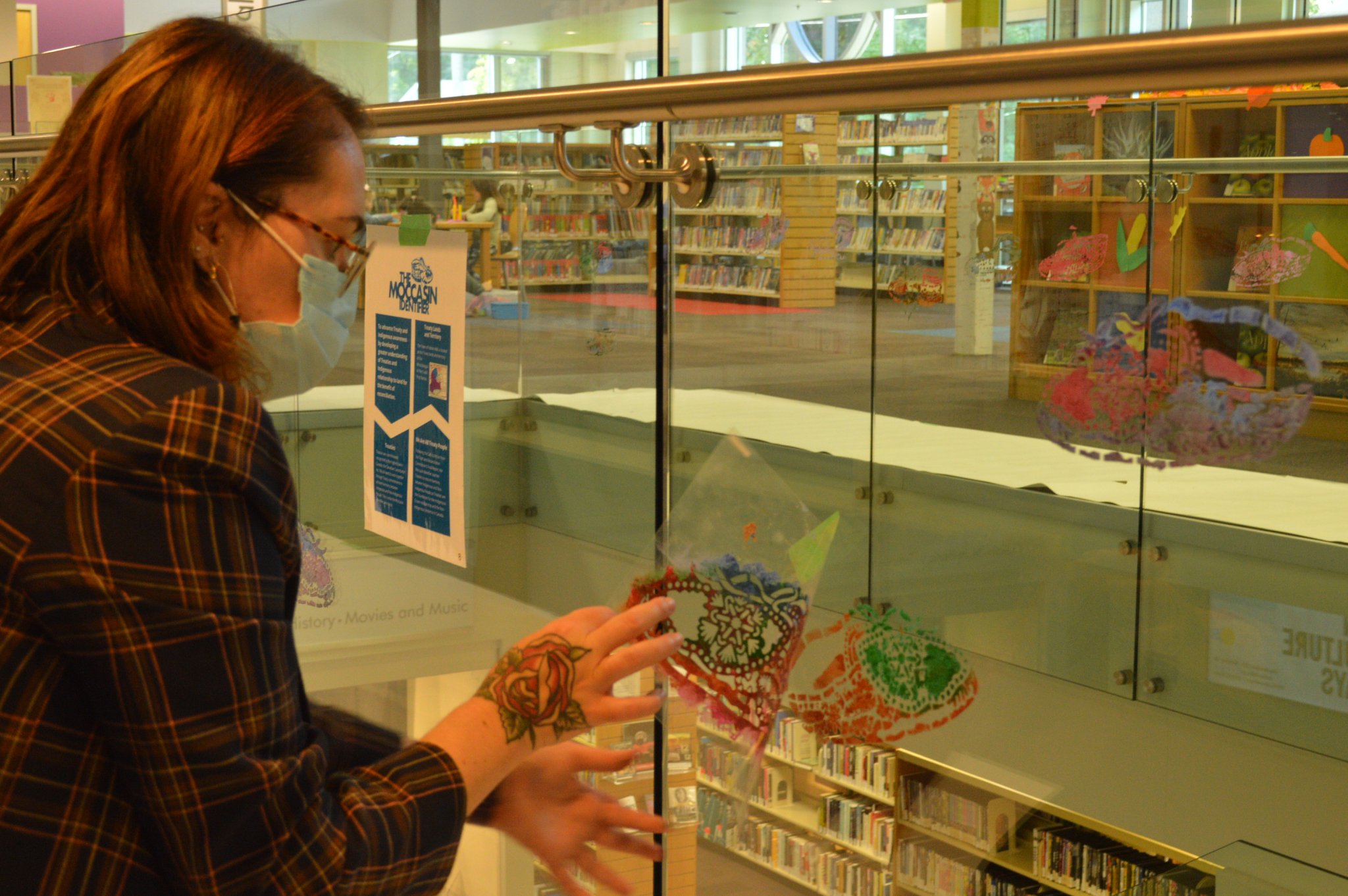By Shari Narine, Local Journalism Initiative Reporter, Windspeaker.com
With the second National Day of Truth and Reconciliation almost upon us, Ginger Gosnell-Myers says too much of this Call to Action falls upon the shoulders of Indigenous peoples. The same people who need to use this day for healing.
“On Sept. 30 there are Indigenous peoples leading workshops (and) a lot of Canadians who are taking workshops led by community members…But this is just more of our people leading this knowledge exchange instead of healing and that is not sustainable or equitable,” said Gosnell-Myers.
Meanwhile, she says, non-Indigenous people are donning orange shirts and shopping. Another day of capitalism, she adds.
Gosnell-Myers, of Nisga’a and Kwakwak’awakw heritage, and fellow for urban Indigenous policy and planning and decolonization at the SFU Wosk Centre for Dialogue, addressed the issue during a conversation hosted by Yellowhead Institute today.
A National Day of Truth and Reconciliation was one of the 94 Calls to Action levied by the Truth and Reconciliation Commission in its final report on the legacy of Indian residential schools. That report was released in 2015.
While designated as federal statutory holiday, the National Day of Truth and Reconciliation does not hold the same status in the majority of provinces and territories. Only Prince Edward Island and the Northwest Territories mark Sept. 30 as a statutory holiday. Manitoba, along with Newfoundland and Labrador, have Sept. 30 as a government holiday, with government offices and schools closed.
“What we are hearing is that the day should be different for us as Indigenous peoples and how we acknowledge the day versus how Canadians would be recognizing the day,” said Gosnell-Myers.
She asserts that Sept. 30 should be a day that gives space to Indigenous people to speak to each other and “having the space to be truthful with each other.”
Included in that space is the need to voice and work through the anger brought on by a colonial system that impacted families through residential schools and intergenerational trauma.
She says when survivors and intergenerational survivors were able to gather when the TRC held its events, its was the first time the truths about residential schools were told. It was “life changing,” said Gosnell-Myers, and a great loss when that space was taken away.
“We know (that) these stories when we hold them in, they hold us back and a lot of these stories untold are actually making us sick…I also think about how the day should be about us dealing with our grief because we have not been dealing with our grief well,” said Gosnell-Myers.
That grief, she says, is for more than family members and personal friends. It’s for the loss of Colton Bushie, Joyce Echaquan, Tina Fontaine, those in James Smith Cree Nation and many more. This grief, she says, needs to be processed collectively.
“I see this as an opportunity to really restore our relations with each other. I think it’s what our ancestors would want for us. To be connected to our communities, to be able to live our culture, to have spaces for it, and to ensure that our lands and water are taken care of. I hear this raised sometimes, but it needs to go further,” said Gosnell-Myers.
She says Indigenous people are used to speaking in spaces set out for politics, economics and academics.
“What will come from our discussions when it’s just us? We develop our connections and sense of community,” she said.
Gosnell-Myers believes that sense of community is what sets Indigenous people apart from the individualized attitudes of Canadians. She points out that the Indian Act, still in place today, forcefully separated Indigenous peoples from each other.
Gosnell-Myers sees the day playing out differently for the rest of Canada.
She says Canadians need to take Sept. 30 as a day to learn about a country that was built on “Indigenous genocide.”
Canadians need to “show up. Speak out, because often we are doing this on our own as Indigenous people,” said Gosnell-Myers. That is the only way meaningful reconciliation can happen.
Discover more from The Milton Reporter
Subscribe to get the latest posts sent to your email.




